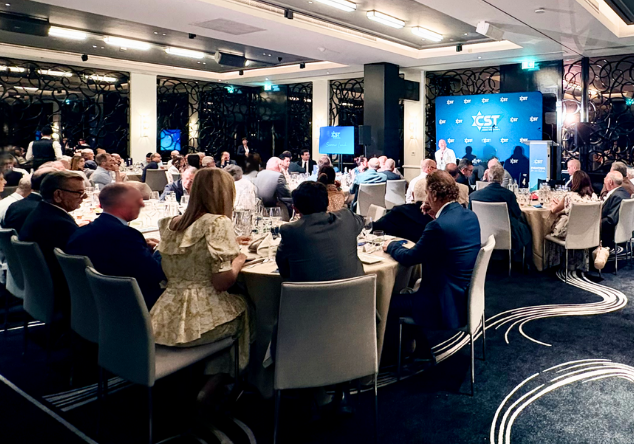CST Blog
Extreme Speech and Democracy
7 July 2009

All democracies have grappled at some point with the difficult balance between protecting free speech and restricting hate speech. The United States is known for its First Amendment, which protects as free speech the most extreme, noxious expressions that would be rendered illegal in many European states. In Europe, by contrast, several countries have criminalised Holocaust Denial and most have laws limiting speech that is capable of inciting hatred of minorities.
This balance is often in flux and can sometimes be rendered obsolete by the changing political times. Despite successful prosecutions of far right anti-Jewish propagandists during the 1990s, the same period was marked by a strong reluctance to prosecute extreme Islamist agitators for material that was, on the surface at least, no less inciteful. This disparity has largely disappeared, but new developments, such as the use of the internet to disseminate hate propaganda, have thrown up new challenges for prosecutors.
In Britain, the threshold for securing convictions for hate speech is set very high to ensure that free speech is not limited unnecessarily. This means that a lot of material that is offensive or hateful is not actually illegal, and is allowed to stand unrestricted by the law. The failed prosecutions of the BNPs Nick Griffin and Mark Collett are obvious examples of this: evidence of Griffin calling Islam a wicked, vicious faith and claiming that Muslims were turning Britain into a multi-racial hell hole were not enough to secure a conviction. The reaction of the Crown Prosecution Service to their acquittal illustrates the blurry and subjective boundaries of the law:
Mrs Allen said: "This prosecution sends out a very strong signal that where the CPS believes someone has tried to incite racial hatred, we will treat it with the utmost seriousness and will not hesitate to prosecute robustly.
"In this case, the CPS was satisfied there was sufficient evidence for a realistic prospect of conviction and that it was in the public interest to proceed. Therefore it was right and proper that the prosecution was brought.
"The jury however had to make their decision on a higher level of proof - they had to be convinced beyond reasonable doubt that an offence had been committed in respect of each speech. In the event, they were not convinced of that and I fully accept and respect their decision."
Nick Griffin and Mark Collett had been accused of stirring up racial hatred in three speeches to British National Party members in the West Yorkshire area. Part of the case for the defence was that freedom of expression should allow for a measure of criticism of racial groups. But Helen Allen says that argument does not always stand up.
Mrs Allen said: "There is a huge difference between debate and stirring up hate. The limitations to free speech made by the law are that it should not be misused to insult, abuse or threaten other people in such a way that racial hatred is stirred up. The jury were not convinced that had happened so the defendants were acquitted.
The contested nature of this law means that, periodically, the suggestion is made to amend the current law to make such prosecutions easier and more likely to result in convictions. While the sentiments behind these suggestions are clear and admirable, they do not bring any greater clarity to the question of precisely where speech stops being merely offensive, and starts to carry the genuine danger of inciting hatred in the minds of real people.
A new book may help to do just that. Extreme Speech and Democracy (eds. Ivan Hare & James Weinstein; Oxford University Press) is the outcome of a conference held at Cambridge Universitys Centre for Public Law in April 2007. CSTs Director of Government and International Affairs, Michael Whine, presented a paper which is included in the book, on the subject of Expanding Holocaust Denial and Legislation Against It. A version of the chapter was previously published by the Jerusalem Centre for Public Affairs and can be read here. Other contributors include some of the worlds leading legal scholars as well as internationally recognised philosophers, historians and writers.
Holocaust Denial, and states responses to it, perhaps sheds more light than anything else on these important questions of, on the one hand, the limits of free speech, and on the other, whether it should be permissible to distort or deny facts in order to incite hatred against minorities. The USA, basing itself on the First Amendment to the Constitution allows Holocaust denial, whereas Germany, France and over half the member states of the European Union, do not. The government of Iran now promotes Holocaust Denial as an instrument of state policy, which takes strategies to combat it beyond national laws and into the realm of international diplomacy. The Iranian initiative has reinvigorated European deniers who had been suffering from the convictions imposed on them by the criminal courts in their own countries.
Michael Whines paper examines the changing nature of Holocaust denial, and lists all the national legislation which criminalises it, for the first time. He also discusses recent criminal cases against deniers and intergovernmental agreements to commemorate the Holocaust, and to ban denial. He concludes that while European states at least, because of their history, are required to provide legal parameters for free speech, it is the education of young people that is more likely to confound Holocaust Denial in the long run.
Read More

CST Summer Lunch 2025
25 June 2025
CST Annual Dinner 2025
26 March 2025

Love since 7 October
14 February 2025
